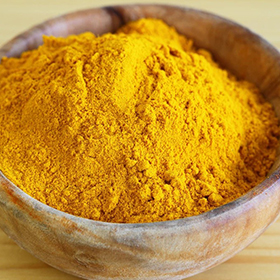
Curcumin, a main component of natural turmeric (Curcuma longa Linn, Turmeric), is a type of polyphenol, which has long been used for curry spice, Chinese traditional herbal medicine, or in Japan, as food coloring for Japanese confectioneries.
Recent studies have shown that curcumin has different beneficial physiological activities in the body. Curcumin is known to have anti-oxidative and anti-inflammatory actions and anticancer action through multiple actions (cytostasis, induction of apoptosis, and anti-angiogenesis, anti-virus action, and cytoprotective).
Furthermore, curcumin is known to lower blood lipid (fat) levles, affecting various transcription factors that control gene expression involved in glucose and fat metabolism, and curcumin intake is expected to reduce different disorders caused by a high-fat diet (HFD).
In this study, they examined the effects of long-term administration of curcumin on artery aging and chronic inflammation—the causes of arteriosclerotic disease. in the high fat diet group oxidative stress increased with cell regulation in the arteries followed by increased dying cells and enhanced inflammation. While the group with curcumin added had suppression of oxidative stress and the arteries of mice at 80 weeks (old age) were the equivalent of those of the 8 week old mice in the experiment.
It seems curcumin has anti-ageing effects on our arteries which is why I supplement with it every day
Source. Curcumin Inhibits Age-Related Vascular Changes in Aged Mice Fed a High-Fat Diet.
